Hydrogen and sustainable fuels
Published on 14 March 2024
Body text 1
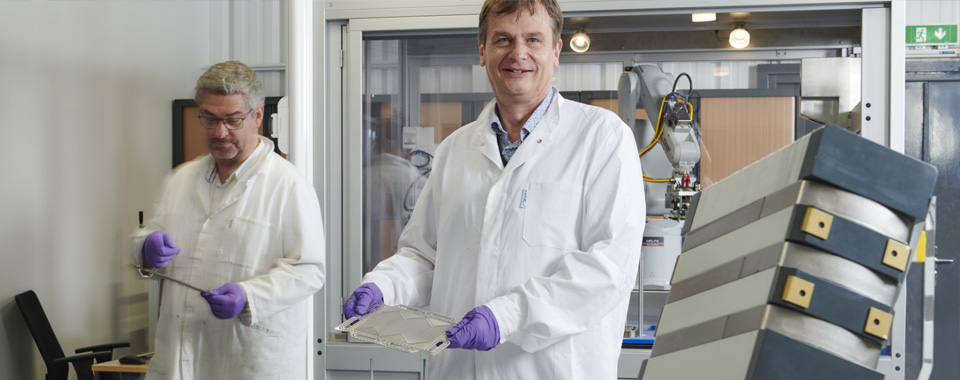
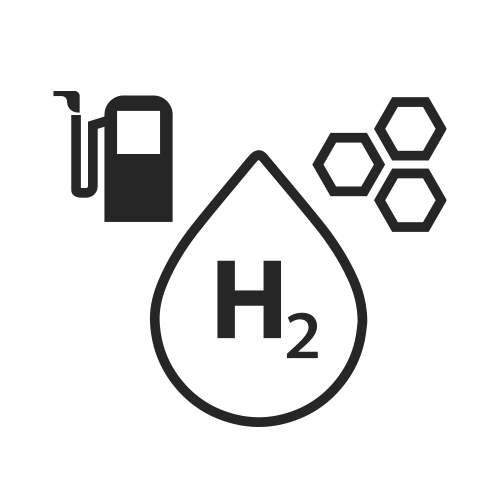
| A versatile energy vector
A massive shift away from fossil fuels, a flexible energy mix, and appropriate storage solutions are needed to support the transition toward a more sustainable, environmentally responsible society. The many solutions available form a complex ecosystem. Electrification is clearly one of the pillars of this new landscape. However, hydrogen and carbon-containing fuels and chemicals will also play a role, especially in heavy transportation and industry. At CEA-Liten we are investigating different combinations of electricity, hydrogen, and carbon-containing resources like CO2, bioresources, and waste. Our research focuses on electrolysis to produce hydrogen and fuel cells to store, transport, and convert it into electricity and heat. We are also exploring the synthesis of carbon-containing substances of interest. We have more than 20 years of experience with these technologies and have successfully transferred several innovations to companies.
|
Body text 2
More detailsHydrogen production
There are several electrolyzer technologies in development, but we are banking on two game changers: high-temperature solid-oxide electrolyzer cells (SOECs) and low-temperature anion exchange membrane electrolyzers (AEMELs). SOECs offer high efficiency. Backed by our know-how spanning the entire value chain, the technology has the potential to produce hydrogen economically. AEMEL technology combines the best of both worlds, with current densities approaching those of proton exchange membrane electrolyzers and the low critical material content of alkaline electrolyzers. | 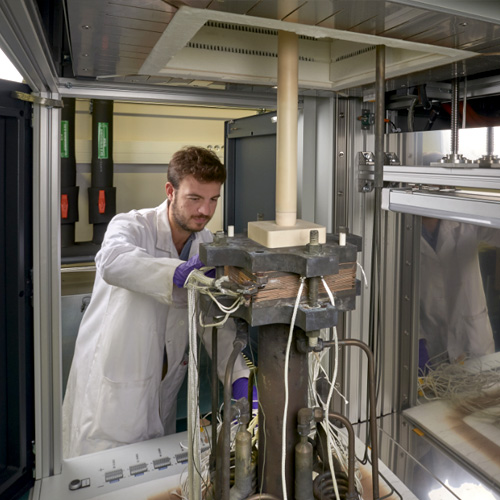
|
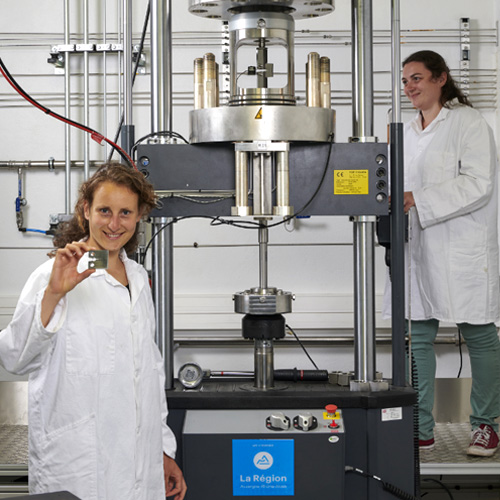
| Hydrogen transportation and storageIn terms of transportation and storage, we are studying liquid organic hydrogen carriers (LOHCs) and energy vectors like ammonia, a solution deemed practical for long-haul transportation. We are working on catalysts and their implementation in reactor designs optimized to obtain the highest possible yields. Our research on the interactions between hydrogen and materials like metals, polymers, and composites will help support better performing, longer lasting, and safer hydrogen transportation and storage equipment. |
Hydrogen conversionCompact, efficient low-temperature proton exchange membrane fuel cells (PEMFCs) are our technology of choice for hydrogen conversion and have already been deployed in certain kinds of vehicles. Our focus is to improve performance and lengthen service life for lower total cost. These advances will also pave the way toward higher-spec PEMFCs for heavy vehicles and stationary storage. In addition to our research on these systems, we are also addressing integration. We have our own test benches to characterize fuel cell components and systems in temperature, humidity, and pressure conditions representative of severe real-world environments. We can also do accelerated aging tests representative of the target product service life. The development of vehicle fleet modeling and monitoring tools to help determine optimal operating strategies rounds out our hydrogen-related R&D. | 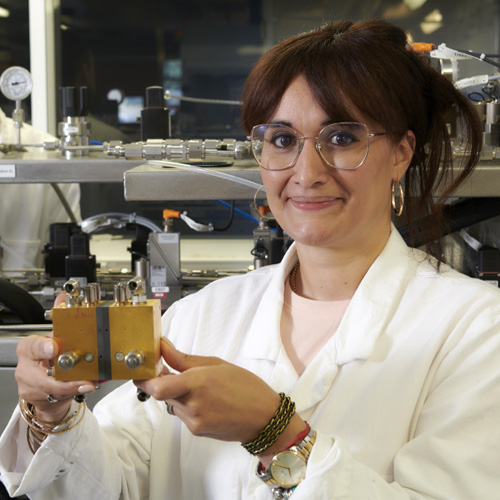
|
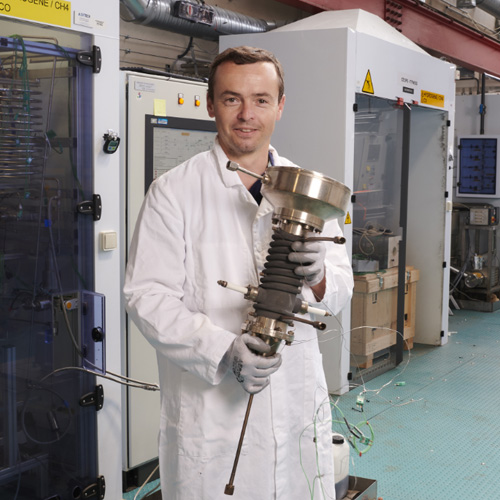
| Conversion of carbon-containing resources
Our approach to the circular carbon economy centers on the production of synthetic fuels and chemicals from CO2 (either from biogenic sources or captured from the atmosphere), from biomass or waste, and from low-carbon hydrogen and energy. We are developing optimized catalysts and reactors for the synthesis of substances like methane, methanol, and kerosene using thermochemical processes like catalytic hydrogenation, hydrothermal conversion, dry conversion, or electrochemical processes. The objective is to develop an end-to-end conversion chain to maximize conversion yields and energy efficiency. We start by developing laboratory-scale reactors, which we use to characterize and model chemical and physical phenomena. This allows us to optimize reactor architectures before scaling up. Our goal is to achieve the best possible system efficiencies by optimizing the processes involved. Our knowledge of the multiple technologies that make up these systems is vital to this research.
|
Technical, economic, and environmental studiesCEA-Liten’s R&D activities are backed by in-house technical, economic, and environmental studies. We gather performance, durability, and yield data from our own test benches and demonstrators, for more accurate analyses than what standard databases would allow. Our experts carry out methodical technical, economic, and environmental studies to forecast the potential and integration of new technologies into the overall energy landscape and to feed our own models.
|
The transition to a more sustainable society will require massive electrification and the development of new energy vectors. At CEA-Liten, we believe that hydrogen and sustainable chemicals and fuels are vital. We are leveraging our deep knowledge of these fields and our multi-scale and multi-physics modeling and micro- and nanocharacterization capabilities to support the development and rollout of these solutions.
|
Body text 3
Focus

| Tech Transfer
Genepac, the first stack we developed, represented a true breakthrough in 2005. Since then, we have continued to improve on our hydrogen technologies, transferring innovations to pioneers like Genvia, Inocel, and Sylfen.
|

| Metharen
The €10 million, seventeen-member EU Metharen project will result in an innovative biomethane (renewable natural gas) production system using household waste as a feedstock and green hydrogen to power the process. CEA-Liten is contributing two technologies to the project: hydrothermal decarbonization and methanation. We are drawing on our end-to-end experience from feedstock preparation via hydrothermal carbonization to the catalytic hydrogenation of the gas produced in an innovative methanation reactor. The gas can be injected into existing natural gas grids.
|
Top page